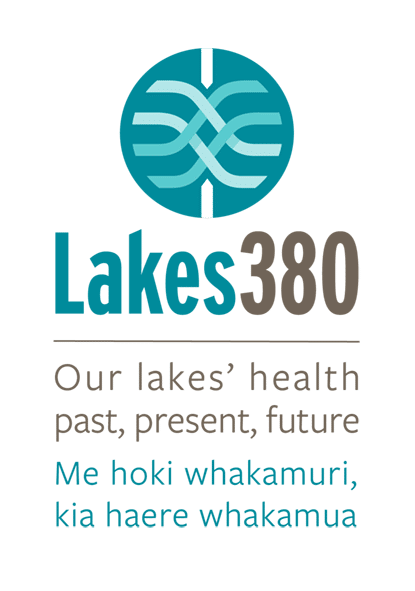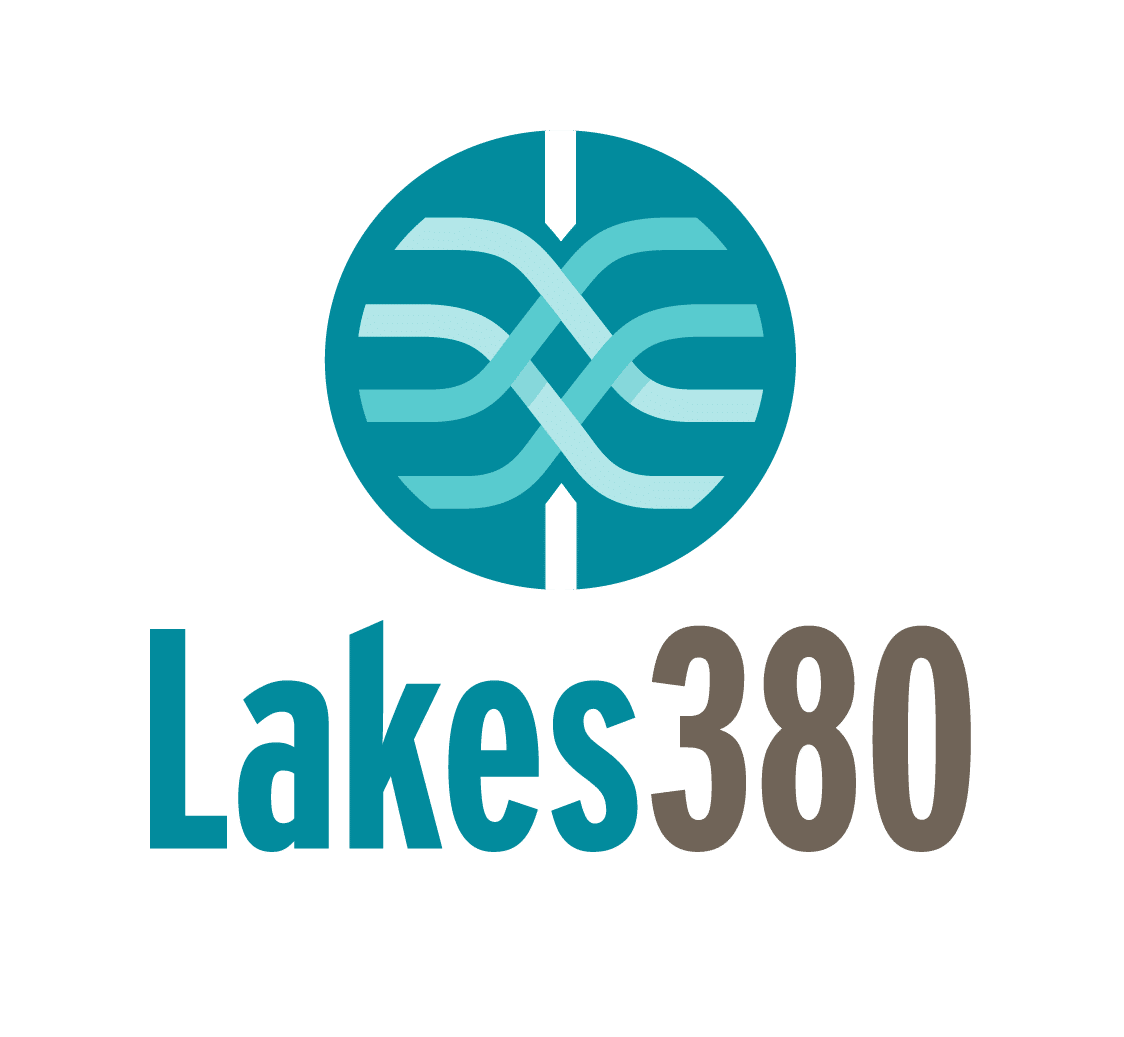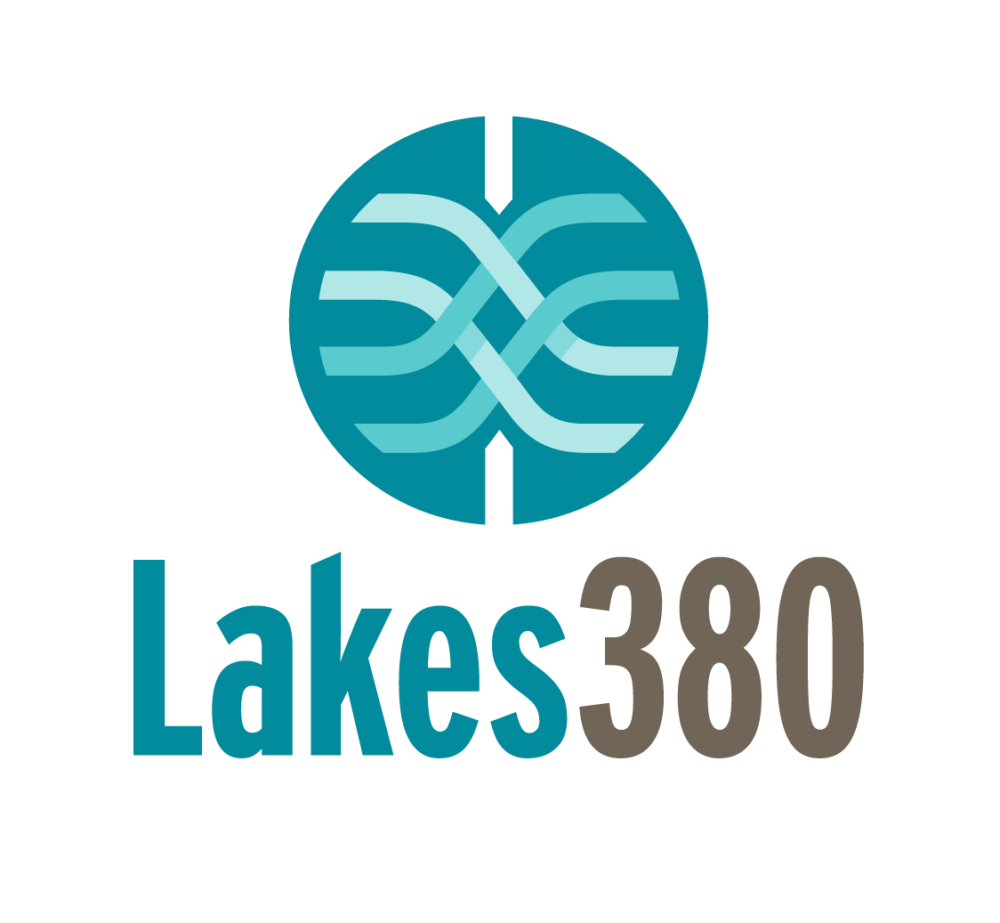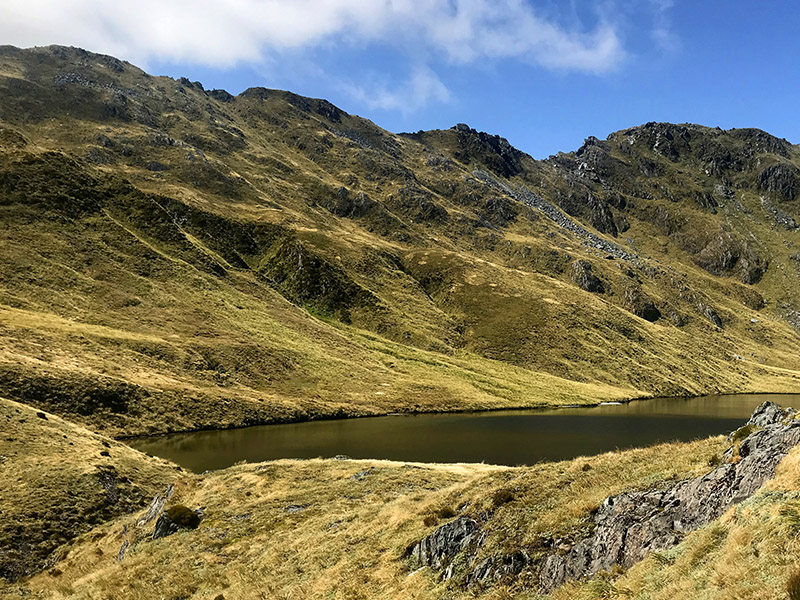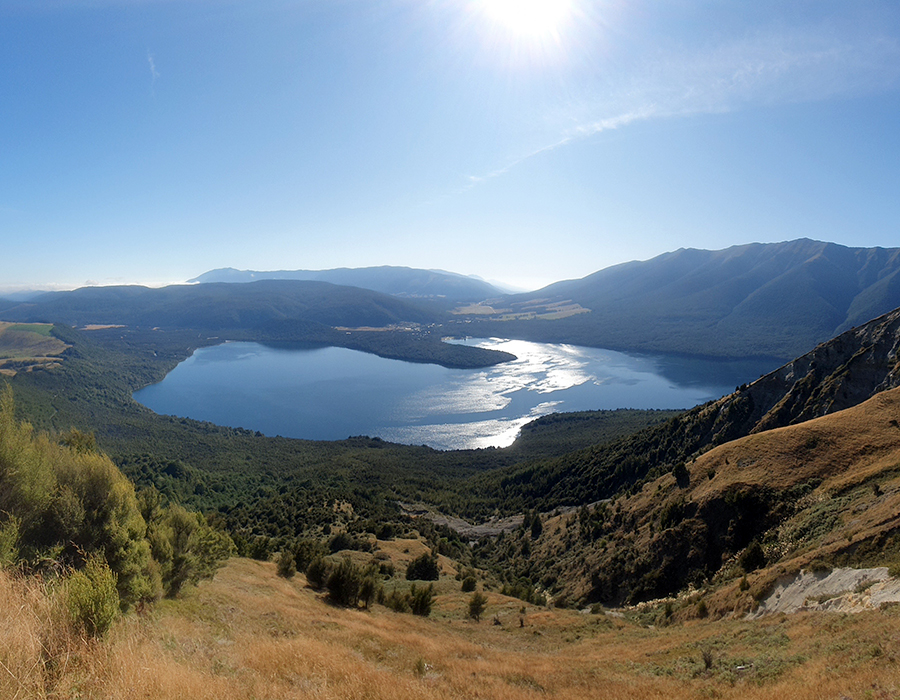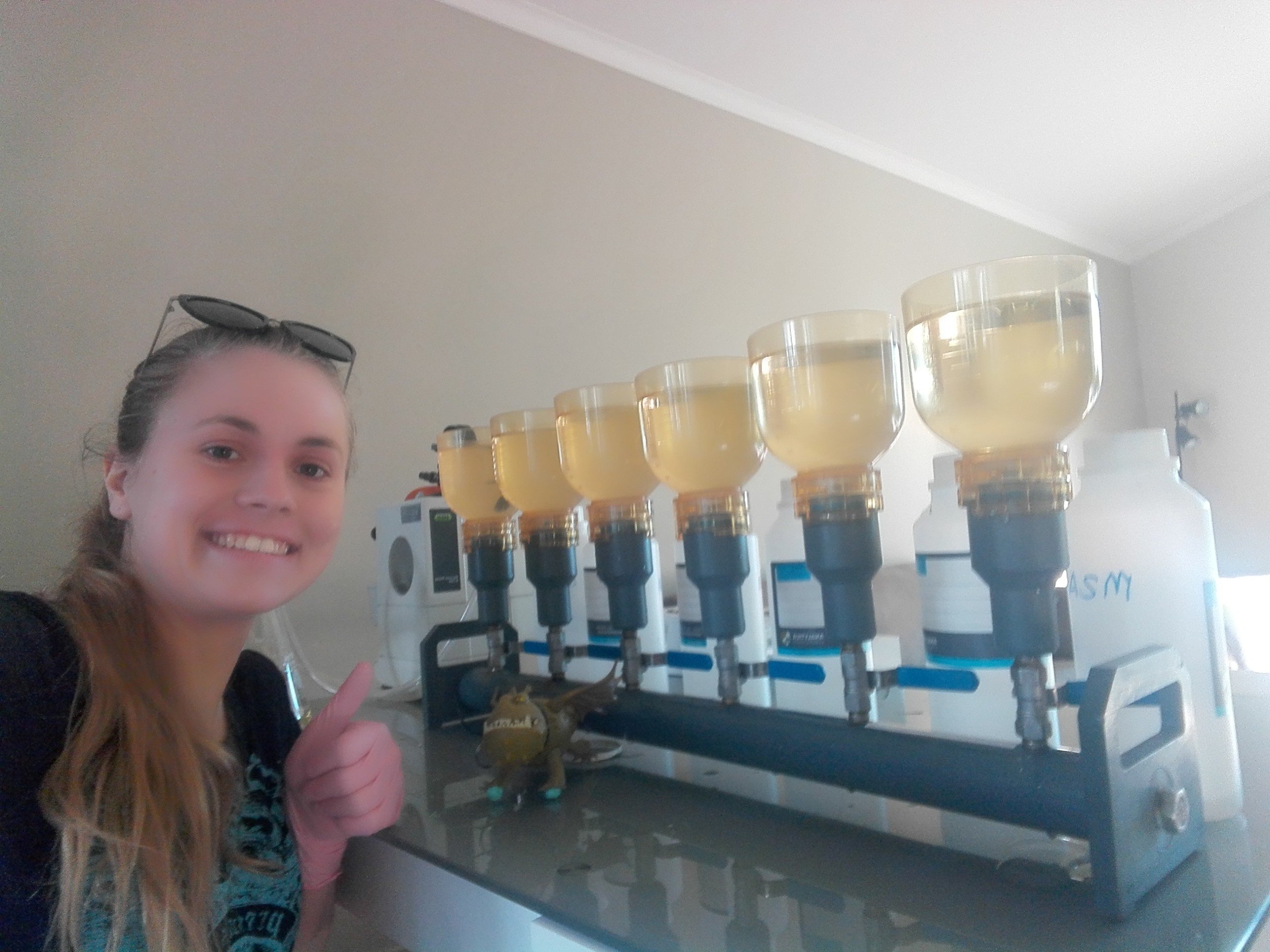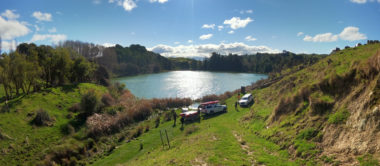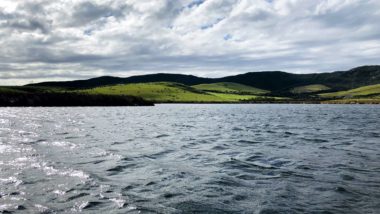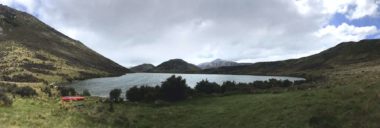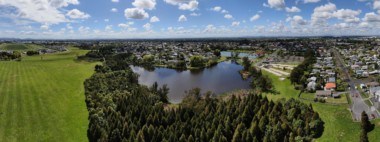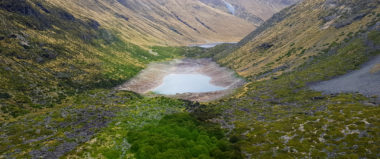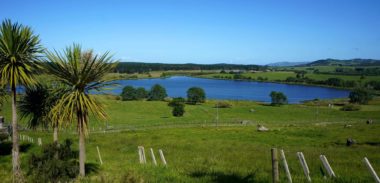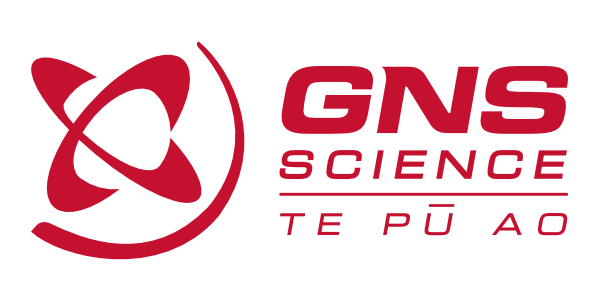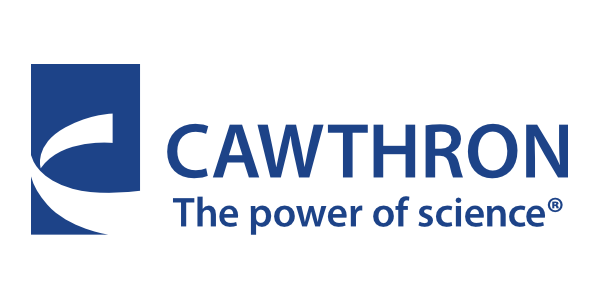By Stuart Caird, Master Student, Victoria University
A memoir of a sincerely satisfied science student…….
To delay the onset of my imminent post-field depression☹, I’ll share with you my sensational start to 2020 with the Lakes380 team on the West Coast of the South Island!
Hmmm oh where to begin? As an MSc student at Victoria, I’ve heard plenty on the grapevine about Lakes380 field work and boy oh boy, did that hype live up to expectation. Based out of Lake Brunner, we sampled a total of 8 lakes, collecting 32 cores and a swathe of water quality data in very atypical West Coast conditions, with a few days nudging 30°C and barely a droplet of the much revered and often feared, West Coast rain.
Day One saw the Victoria and Cawthron based team (joined by our favourite Australian, John Tibby) travel slightly inland to sample lakes Haupiri (Photo 1) and Hochstetter.
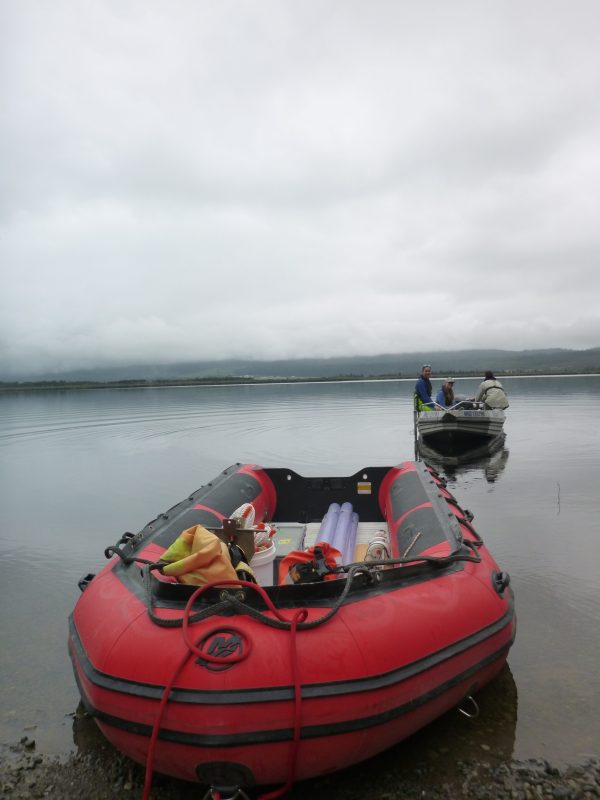
This being my first field involvement with Lakes380, I was immediately impressed by the efficiency and kiwi ingenuity (with a sprinkling of Canadian input from Andrew Rees and Dave Kelly) of the coring and water quality sampling process (see Sean Waters demonstrating the highly debated coring technique of micro-tapping – Photo 2).
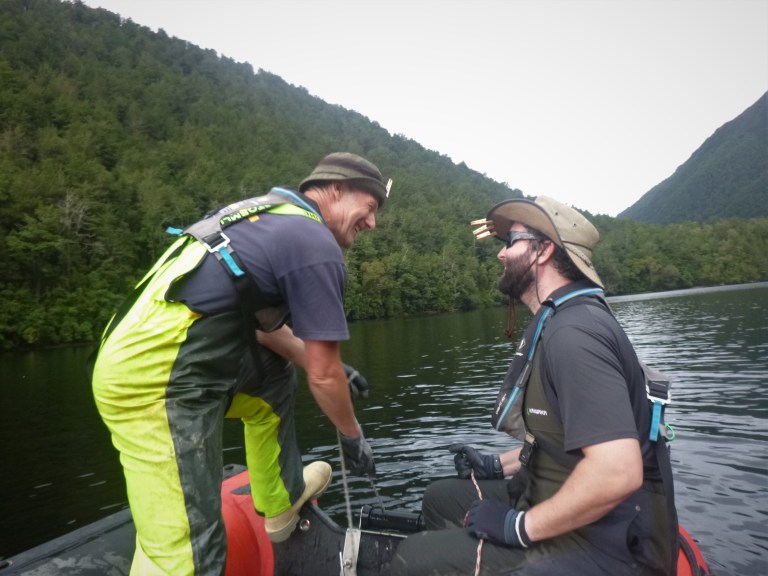
The quality of the jokes (particularly on the coring boat) however, were at times significantly less impressive and left a lot to be desired (cough…cough….Sean Waters and Andrew Rees).
Day Two involved another trip inland from our accommodation to Lake Poerua (Photo 3) and Kangaroo Lake. Many of the lakes sampled on this trip were tannin stained, but still, this did little to hamper the aesthetic beauty of the region (as John constantly reminded us). We are truly lucky to be able to work in such a special place!
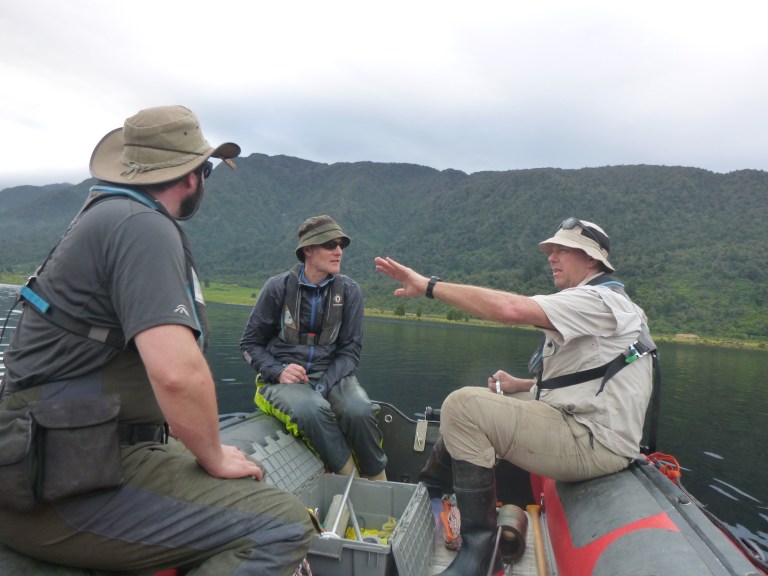
Day Three was a helicopter day!!!!! The majority of the team ventured into the alpine zone to sample the stunning Lake Morgan (Photo 4). This pristine site has to be one of the more picturesque lakes sampled in the project so far.

That left three lakes remaining; Mahinapua, Kaurapataka and Lady Lake. Kaurarapataka was another fly-to lake located in the sub-alpine zone, along the Taramakau valley, adjacent to Arthur’s Pass. This was my first time in a helicopter and it was epic. Truly grateful to get this opportunity as there aren’t too many 22-year olds who get to do that for work! Photo 5.
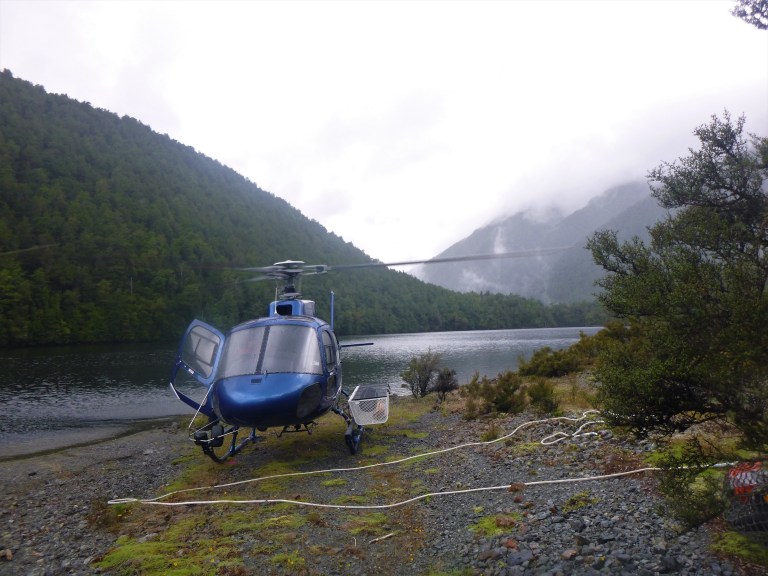
Lake Mahinupua provided a few logistical challenges for the team to keep things interesting but persistence prevailed in the end; Lady Lake lived up to her name and was a delight to sample.
All in all, a wonderful week spent on the ‘Coast! It was nice to experience, gather an appreciation for and understand the field processes that occur before the samples arrive in the labs for analysis, helping fit together the Lakes380 jigsaw puzzle in my head! The awesome company only added to the experience and I was so glad to meet a whole new bunch of the Lakes380 team. Very much looking forward to spending some more quality time in the field in the future with you all soon
